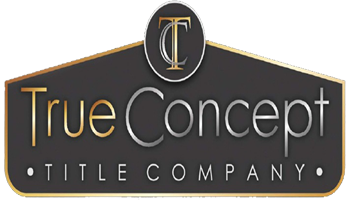
Selling your home by yourself, commonly known as a For Sale by Owner (FSBO) transaction, can seem daunting at first. However, with the right preparation and understanding of the process from a title company’s perspective, you can confidently navigate through the complexities and successfully close the deal. Here’s a comprehensive guide to help you through each stage of the FSBO process.
The Importance of the Title Company in FSBO Transactions
The image of you and your buyer, surrounded by attorneys, sitting at a large table filled with forms inside a title company’s office, is not just the culmination of the home-selling process but a critical juncture ensuring the legality and security of the transaction. A title company plays a pivotal role in FSBO transactions, offering services ranging from title searches to handling escrow accounts, ensuring that the property is free of liens, and facilitating a smooth transfer of ownership.
Accepting an Offer to Closing: Your To-Do List
Once you’ve accepted an offer on your home, the real work begins. This phase involves several key steps:
- Hire an Attorney (If Necessary): Depending on your state’s laws, you might need an attorney to prepare certain legal documents or oversee the closing. Even if it’s not a legal requirement, having an attorney can help ensure your paperwork is in order, protecting your rights throughout the transaction.
- Order Title and Arrange for Escrow: Negotiate who will hire the title company and pay associated fees. Typically, the seller pays for the owner’s title insurance policy. Using your title company as an escrow agent can streamline the process, holding funds and important documents until the transaction is complete.
- Prepare for the Appraisal and Inspection: Ensure your home is in its best condition to facilitate a smooth appraisal and inspection. Address any minor issues beforehand to avoid complications.
- Negotiate Repairs: Based on the inspection results, you may need to negotiate with the buyer over repairs. Focus on addressing major defects rather than cosmetic issues.
- Get Your Paperwork in Order: Essential documents include the title to prove ownership, property taxes, loan documents, property survey, plans and permits, and homeowner’s insurance information.
Closing with Confidence
Closing involves reviewing the HUD-1 settlement statement, which details all financial transactions. Ensure you have all necessary documents, a photo ID, and your checkbook ready. Payments you might need to cover include your mortgage balance, any applicable commissions, and closing costs.
Closing Costs in FSBO Transactions
Closing costs are an integral part of the selling process, typically amounting to two to four percent of the purchase price. These can include escrow or closing fees, origination fees, home protection plans, attorney fees, transfer taxes, recording fees, notary fees, and title policy costs.
Tying Up Loose Ends
After closing, ensure all utilities are transferred or canceled, submit a change of address form, and arrange for the final payoff with your mortgage company. Collect all keys, remotes, and important documents for the new owners.
Conclusion: The FSBO Journey from a Title Company’s Viewpoint
Selling your home as an FSBO can be a rewarding experience, offering significant savings and a deep understanding of the real estate transaction process. By following this guide and working closely with a trusted title company, you can navigate the complexities of FSBO transactions with confidence. Remember, each step, from accepting an offer to closing the deal, is an opportunity to ensure a smooth and successful sale.
Celebrate your accomplishment; you’ve not only saved money but also gained invaluable experience for future real estate endeavors.


Comments are closed.